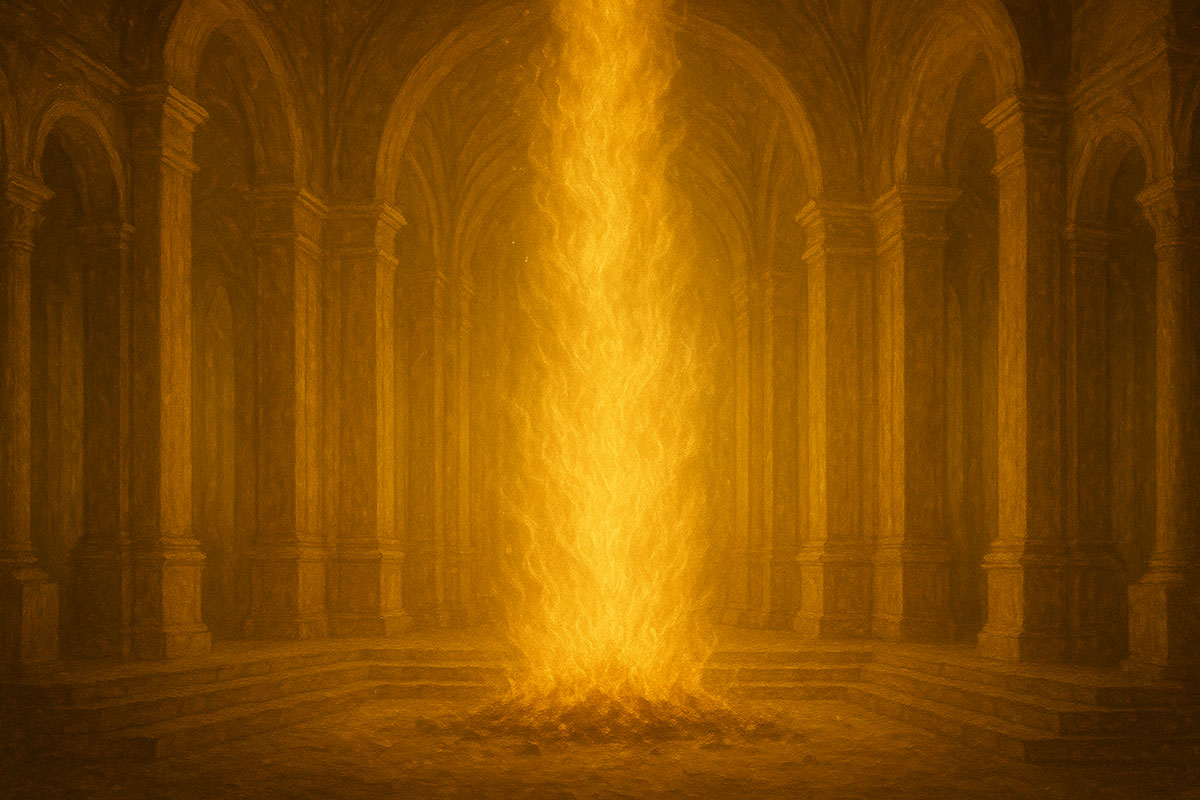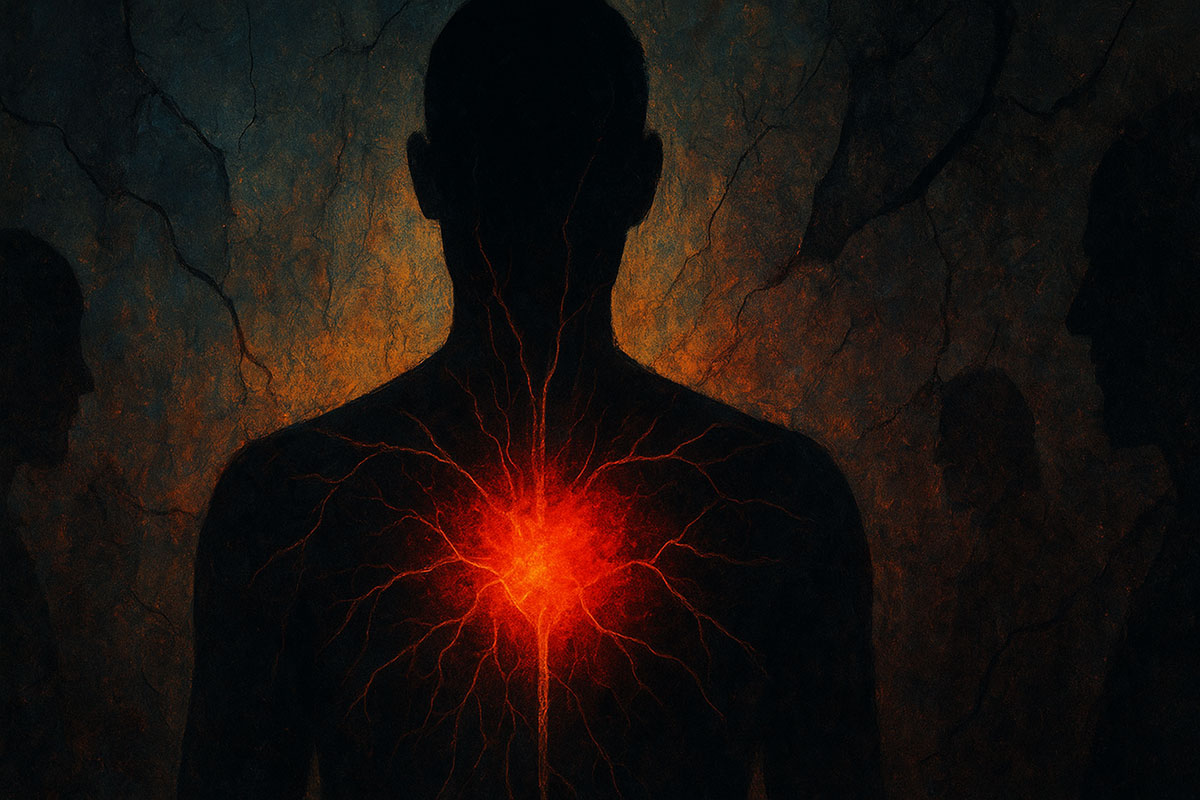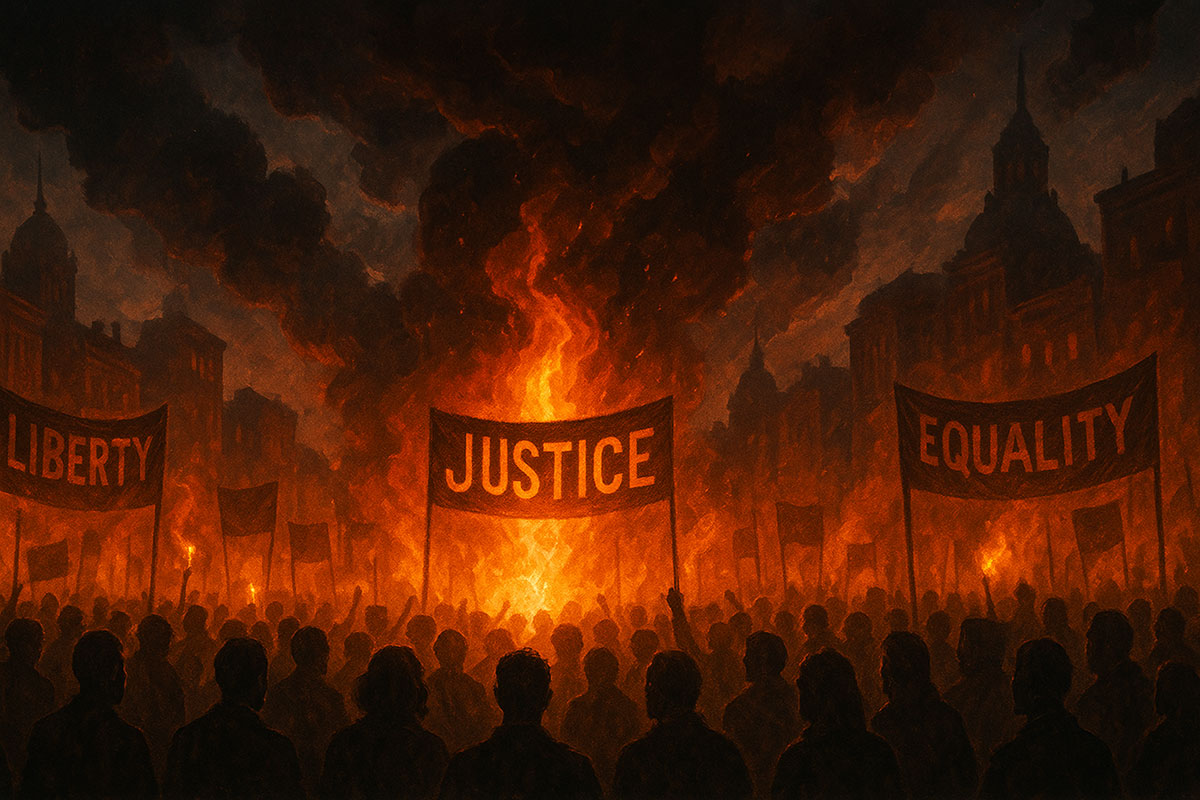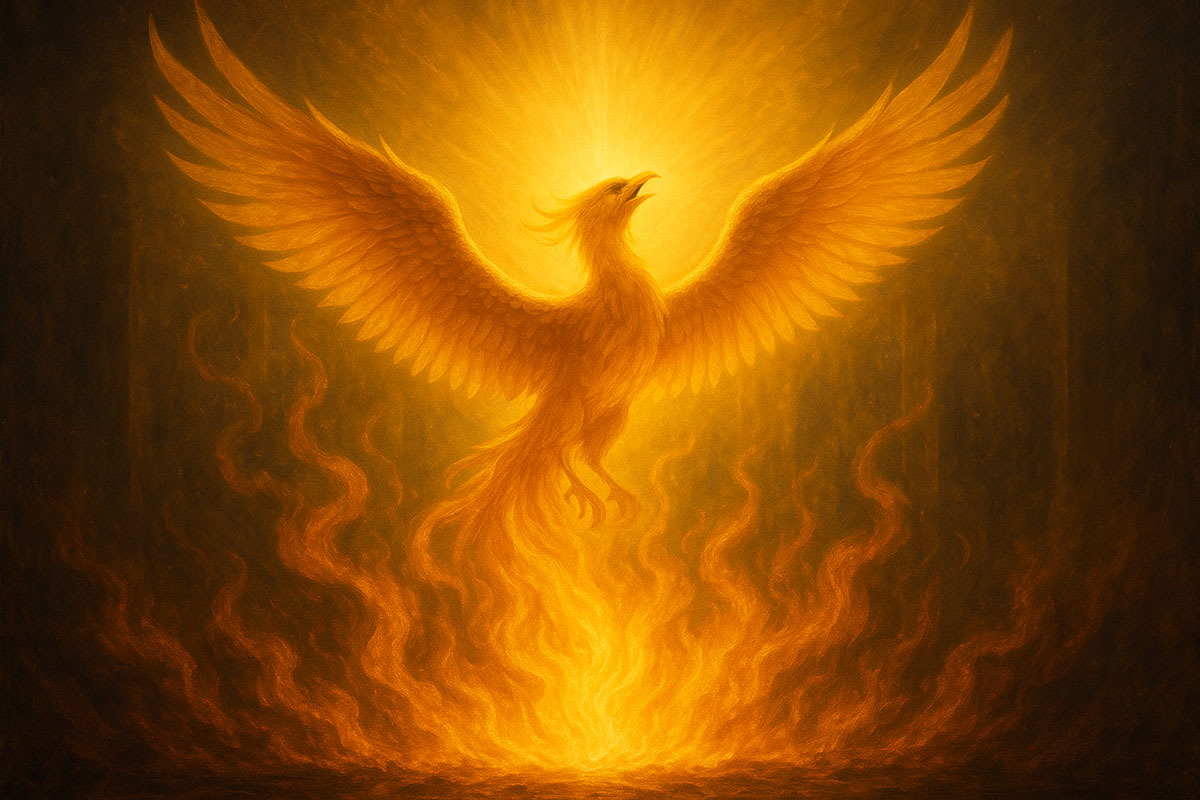
|
Getting your Trinity Audio player ready...
|

Karen Armstrong:
Anger has always been a companion to humanity. From the earliest sacred texts to the speeches of modern prophets, we see its double face—sometimes as a destructive fire, sometimes as a spark of transformation. In the Hebrew Bible, God’s anger blazes against injustice. In the Gospels, Jesus overturns the tables of exploitation in the temple. In Buddhism, anger is a fire to be quenched; in Stoicism, it is madness to be restrained. Yet even here, there are glimpses of anger as a force that protects what is most sacred.
Our modern world often treats anger as something purely negative—something to be silenced, suppressed, or shamed. But if we look closer, we see that every great movement for justice has carried an element of anger within it. The abolition of slavery, the struggle for women’s rights, the fight for civil rights—all were fueled by indignation at injustice. And yet, left unchecked, anger corrodes the very movements it animates.
The question, then, is not whether anger is good or bad. The question is: what kind of anger is this, and to what end is it directed? If it serves only ego, it becomes poison. If it is disciplined by compassion and tethered to love, it becomes a sacred fire.
In this conversation, prophets, poets, philosophers, and reformers will guide us through the paradox. They will help us discern anger as self-destruction, anger as a signal of the soul, anger as the engine of political struggle, and finally, anger transmuted into light. Their voices remind us that anger is not merely an obstacle to overcome—it can be a teacher, a companion, and, at times, a holy flame.
(Note: This is an imaginary conversation, a creative exploration of an idea, and not a real speech or event.)

Topic 1: The Sacred Fire — When Anger Serves Love

Karen Armstrong: When we think of anger, especially in religious contexts, it’s often painted as something sinful. Yet history shows us that some of the greatest moments of transformation came when anger was channeled for justice. Let me ask—when is anger not only permissible but necessary?
Jesus: In the temple courts, when I saw merchants exploiting the poor and desecrating my Father’s house, my heart burned. That was not selfish anger—it was grief turned to fire. Anger that springs from love for God and neighbor can be holy, for it resists what corrupts life itself.
Confucius: Anger, if left untended, is chaos. But there are times when indignation arises from righteousness, and then it is not disorder but correction. To fail to act when virtue is trampled is also a fault. What matters is balance—anger expressed in proportion, without hatred.
Mahatma Gandhi: I have always said anger is like electricity. Untamed, it destroys; harnessed, it lights the world. My anger against colonial injustice fueled my resolve. But I disciplined it, transforming it into satyagraha—truth-force—so that it would not consume me or my cause.
Martin Luther King Jr.: Anger at injustice is the wellspring of the civil rights movement. But hatred cannot drive out hatred. My challenge was to let indignation ignite the march, but love guide our steps. Without anger, we might never have moved; without love, we would have lost our soul.
Karen Armstrong: All of you touch on this tension between anger’s danger and necessity. But let me press deeper: How do we keep righteous anger from slipping into violence or bitterness?
Gandhi: Discipline is the key. I fasted, I prayed, I practiced silence. These were not private acts but means of tempering anger so it served truth and not vengeance. Without such training, even noble anger can curdle into cruelty.
Jesus: The heart must be guarded. “Love your enemies, pray for those who persecute you.” When anger arises, test it: does it still desire the enemy’s restoration, or only their ruin? The former is love’s fire; the latter is sin’s flame.
MLK Jr.: I learned that marching into the streets required not just courage but spiritual preparation. We trained people to endure insults, blows, even jail, without retaliating. Anger gave us the courage to walk, but nonviolence kept our humanity intact.
Confucius: To cultivate virtue is to master one’s temper. The noble person is not without anger, but his anger does not linger, nor does it fester into revenge. If it leaves harmony in its wake, then it is righteous; if it leaves discord, then it is not.
Karen Armstrong: So anger may be rooted in love and discipline. But let me ask one final question: What should ordinary people today—facing injustice, inequality, or even personal betrayal—learn from your examples?
Confucius: Begin with the self. If each person tended to anger as they would a garden, pulling weeds before they choke the crop, society itself would flourish. The smallest act of self-restraint ripples outward.
MLK Jr.: Transform your indignation into action for justice, but refuse the path of bitterness. Organize, speak out, march if you must—but keep your heart open to reconciliation, even when the world resists it.
Jesus: Remember that anger is not the enemy. Hatred is. Ask always: does this anger spring from love of God and neighbor? If so, let it move you to defend the poor, the outcast, the wounded. But let it never choke out mercy.
Gandhi: Do not suppress anger, for suppression leads to violence of another kind. Instead, train it. Use it as a servant, not a master. With patience and discipline, it can become the energy of justice.
Karen Armstrong: Then the lesson seems clear: anger is not to be banished, but purified. When it arises from compassion and is disciplined by love, it becomes sacred fire—the fire that lights reform, heals societies, and protects the vulnerable.
Topic 2: The Poisoned Chalice — When Anger Destroys

James Baldwin: Anger is a double-edged blade. It can cut through hypocrisy, but it can also wound the hand that wields it. Let’s begin: why is uncontrolled anger so destructive to the one who feels it?
Buddha: Anger is a fire that burns the vessel in which it is carried before it ever touches its target. When a man clings to wrath, it is as if he grips a hot coal, thinking to throw it at another, but only burning himself.
Marcus Aurelius: Indeed. The angry man forgets that he injures himself most. He allows another’s faults to dictate his own reason. Anger makes us slaves—not to those we oppose, but to the passions within.
Seneca: Anger is madness, sudden and dangerous. It blinds the eyes, deafens the ears, and strangles reason. No crime has been committed that has not been worsened by rage. Even when we believe it just, anger makes us worse than the wrong we resist.
Maya Angelou: I have seen bitterness turn people hollow. Anger left unchecked eats away at joy until all that’s left is a husk of resentment. If we let it, anger makes us prisoners, pacing a cell built of our own memories.
James Baldwin: Powerful words. But people often feel anger is natural—so why not give it full vent? Isn’t release better than repression?
Seneca: To release anger is to unleash a flood that destroys fields and homes alike. Better to guide the stream into channels of usefulness. Venting does not heal; it inflames.
Buddha: Suppression is no cure, true. But mindfulness is the path. To recognize anger, to breathe with it, to see it dissolve—this is the way to free oneself without harm.
Maya Angelou: I agree. To vent is not freedom, it is surrender. True freedom comes when you can name anger, claim it, and then choose what to do with it. Like poetry, it must be shaped if it is to carry truth instead of venom.
Marcus Aurelius: The discipline of the soul is to pause. Ask: will this anger serve justice, or is it only my pride clamoring? If it is pride, cast it aside as you would rotten fruit.
James Baldwin: Let me press you all further. If anger so easily corrupts, how can we tell the difference between anger that destroys and anger that reveals truth?
Buddha: Anger that destroys is rooted in self—my injury, my pride. Anger that reveals truth is rooted in compassion, desiring the end of suffering for all beings. One poisons, the other awakens.
Marcus Aurelius: Anger that reveals truth is calm beneath the surface. It seeks to correct without hatred. Anger that destroys is turbulent, leaving wreckage behind it. We know them by their fruits.
Maya Angelou: Anger that reveals truth has music in it. Think of a singer pouring her soul into a song—there is fire, yes, but also beauty. Destructive anger is noise, clashing cymbals that drown out love.
Seneca: If anger must be distinguished, look to reason. If reason is absent, if the mind is clouded, then what remains is ruin. Truth never needs frenzy to stand.
James Baldwin: And perhaps that is our warning. Anger can tell us something is wrong—but unless disciplined, it turns us into what we hate. The poison is not in the emotion itself, but in drinking it without wisdom.
Topic 3: The Signal of the Soul — Psychological Perspectives

Carl Jung: We have spoken of anger as virtue and vice, but now let us consider it as a psychic event. Anger, like a dream, carries a message from the unconscious. My question is: what does anger reveal about the inner life of the one who feels it?
Sigmund Freud: Anger often masks other impulses. It may cover fear, desire, or wounded pride. The ego cannot bear such feelings, so it redirects them outward. The angry outburst is rarely about the object at hand—it is about the repressed that has found a crack.
Brené Brown: I’d add that anger is often a secondary emotion. Underneath, we usually find shame, vulnerability, or grief. When we don’t know how to speak those softer truths, anger comes out instead, like armor we put on so the world won’t see our hurt.
Daniel Goleman: Exactly. Anger is data—it signals that something feels unjust or threatening. The problem isn’t the signal itself but whether we have the self-awareness to pause and the self-regulation to choose our response. Emotional intelligence is about using that signal wisely.
bell hooks: For many of us, anger is the first honest voice we have. Women, Black people, the oppressed—often we are told to be quiet, to be polite. Anger says: I exist, I hurt, I refuse to be erased. The danger is not anger itself but a world that doesn’t listen until we shout.
Carl Jung: Insightful. If anger is a signal, the challenge becomes what we do with it. How, then, can a person work with their anger so that it becomes constructive rather than destructive?
Daniel Goleman: First, cultivate awareness. Pause, name the emotion: “I am angry.” That small gap between stimulus and response changes everything. Then regulate—take a breath, step away, choose words deliberately. Anger harnessed is powerful; anger unleashed blinds.
Freud: But do not underestimate the unconscious. If one only represses, the anger will resurface elsewhere—perhaps in illness, or in displaced rage at the innocent. It must be brought into consciousness, examined, given form. That is why analysis is needed.
Brené Brown: And storytelling. When we dare to name what’s beneath the anger—“I feel hurt, I feel unseen”—we turn conflict into connection. Vulnerability takes courage, but it transforms anger into intimacy.
bell hooks: And community. Anger alone can isolate; shared anger can liberate. When we gather and say, “This is wrong, and I too am angry,” we create solidarity. The trick is not to stop at rage but to move toward love, toward action that heals.
Carl Jung: Let me ask one final question: If anger is a messenger, what is the deepest wisdom it is trying to deliver to the human soul?
bell hooks: That we are alive, that our dignity matters. Anger says: “Something here is not right.” If we listen closely, it points us back to love—the love we are denied, the love we demand.
Freud: It tells us that repression has limits. The psyche will not tolerate endless suppression. Anger insists that the hidden be brought to light.
Brené Brown: It whispers: “Pay attention.” Beneath the shouting is often a tender truth—your longing for belonging, for respect, for connection. If you honor that, anger becomes a guide.
Goleman: It says: “Act.” Not lash out, but act. Fix the injustice, set the boundary, speak the truth. Anger is energy—it wants movement. Used wisely, it changes lives.
Jung: I would say anger is the shadow knocking on the door. It asks: will you deny me, or will you integrate me? In its raw form it is dangerous, but if embraced, it becomes part of the wholeness of the Self.
Carl Jung (closing): Then perhaps anger is not an enemy but a herald. If ignored, it becomes poison. If repressed, it festers. But if listened to with courage, it becomes the very path to individuation, wholeness, and truth.
Topic 4: The Social Firestorm — Anger in Politics and Justice

Cornel West: Brothers and sisters, anger in the public square has torn down empires and built new nations. But it can also devour democracy from within. Let me ask each of you—how has anger shaped political struggle in your life or cause?
Nelson Mandela: Anger was my companion in prison. For years, it burned against the injustice of apartheid. But I learned: if I let it consume me, I would be no different from my oppressors. I resolved to use my anger not for vengeance but for transformation. That discipline made reconciliation possible.
Malcolm X: I will not soften my words. Anger was necessary. Without anger, Black people would have remained docile, silent. Anger woke us up. It gave us courage to confront a violent system. The problem was never the anger of the oppressed, but the violence that made anger inevitable.
Susan B. Anthony: For women, righteous anger has been a shield and a sword. When denied the right to vote, to own property, to have a voice, indignation was the fire that kept us marching. Society calls women’s anger unbecoming, but without it, justice would have been stillborn.
Tucker Carlson: Political anger today has become something else. People are furious, not just at injustice but at being ignored, mocked, told their voices don’t matter. Anger drives populist movements because ordinary people feel betrayed by elites. The risk is that their fury is ridiculed instead of heard.
Cornel West: Strong words. But here’s the paradox: anger fuels movements, yet it also fractures them. How do we channel collective anger so it builds justice instead of chaos?
Mandela: By coupling it with vision. Anger must point beyond itself. Without a dream of reconciliation, our anger in South Africa would have ended in civil war. We had to imagine a future larger than revenge.
Anthony: Anger must be organized. Righteous indignation by itself is a cry in the street. But gathered into petitions, speeches, and votes, it becomes irresistible. Discipline turns passion into power.
Malcolm X: Organization, yes, but never domestication. Too often, leaders ask the oppressed to calm down, to wait. My warning is this: if you kill anger prematurely, you kill the movement. Anger must be honored as the lifeblood of struggle.
Carlson: Anger must also be respected across divides. Too often, political elites dismiss the grievances of rural Americans, working-class citizens, conservatives. That contempt fuels rage. If leaders listened with humility instead of disdain, anger could be calmed without suppression.
West: And I say amen to all of you. For me, righteous anger must be tied to love. Without love, anger curdles into hatred. Without anger, love becomes sentimentality. The fusion of the two is the essence of prophetic politics.
Cornel West: One last question. Looking at today’s world—polarized, boiling with resentment—what guidance would you give ordinary people about their political anger?
Malcolm X: Do not let anyone shame you for being angry. Anger means you are awake. But direct it with clarity—against systems, not scapegoats.
Mandela: Forgive, but do not forget. Use anger as energy for change, but never as an excuse for vengeance. The goal is freedom, not endless war.
Anthony: Keep your anger steady. Don’t let the world trivialize it. Let it push you to vote, to organize, to keep pressing forward even when doors slam shut.
Carlson: Demand that leaders respect your anger. Don’t let media or elites manipulate it into hysteria. Stand firm, but stay clear-headed.
West: And I say: let your anger sing with love. Let it call forth justice, but never crush mercy. For in the end, the question is not whether we are angry, but whether our anger builds a more human world.
Topic 5: Transmuting Anger — From Fire to Light

Thích Nhất Hạnh: My dear friends, anger is a seed in us all. It can burn, but it can also illuminate if we hold it with care. Let me begin: how have you each seen anger transmuted into something life-giving rather than destructive?
Rumi: When I was torn apart by longing, I found rage within me—rage at absence, at silence. But I learned: anger is the raw wood; love is the fire that makes it glow. I spun my fury into verses, and there it turned into a song. Poetry is anger kissed by the Beloved.
Viktor Frankl: In the camps, we had reason for rage. But anger without meaning would have devoured us. I discovered that even suffering—yes, even righteous anger—can be borne if we can find a why. Transmuted, it becomes purpose, and purpose gives life.
Desmond Tutu: I have seen entire nations poisoned by bitterness. But when we forgave—not by ignoring anger but by facing it honestly—we were free. Forgiveness is not denial; it is the alchemy that turns the lead of rage into the gold of joy.
Dalai Lama: Anger arises quickly when we feel harmed. But if we train the mind in compassion, even the one who hurts us is seen as a fellow sufferer. Compassion is the sunlight that melts the ice of rage. Without it, anger hardens the heart.
Thích Nhất Hạnh: Beautiful. But tell me—what practices, inward or outward, help a person hold their anger without being consumed by it?
Frankl: Reflection. Pause and ask: what meaning can I choose here? Between stimulus and response, there is space. In that space, we decide whether anger enslaves or ennobles us.
Rumi: Dance. Sing. Create. Do not drown anger in silence; turn it into beauty. When anger becomes movement, it becomes prayer.
Dalai Lama: Meditation. Step back and breathe. If you observe anger as a passing storm in the mind, you will not mistake it for the sky itself.
Tutu: Laughter helps, too. Humor disarms bitterness. In our truth commissions, we wept, yes, but we also laughed. Joy makes space for healing, even while anger is acknowledged.
Thích Nhất Hạnh: I teach my students: hold your anger like a crying baby. Do not throw it away, do not let it scream unchecked. Cradle it. Breathe with it. In your arms, it softens, and in softening, it teaches you compassion.
Thích Nhất Hạnh: Let me ask one final question: what ultimate wisdom about anger should humanity carry forward into the future?
Desmond Tutu: That clinging to anger is to drink poison and hope the other dies. Forgiveness frees not just the enemy, but ourselves.
Frankl: That anger is a signal of our deepest values. If we transmute it into meaning, it will build rather than destroy.
Rumi: That anger is the raw clay of love. Molded, it becomes the chalice of compassion.
Dalai Lama: That anger is universal, but so is compassion. If we cultivate the latter, the former will bow in service to it.
Thích Nhất Hạnh: And I would say: anger is not to be feared or banished, but embraced and transformed. When we practice mindfulness, we see anger as part of us—but not all of us. In holding it gently, we become free.
Final Thoughts By Desmond Tutu

I have seen anger in its rawest form—burning in the eyes of people stripped of dignity, rising like smoke from the wounds of apartheid, lashing out in bitterness and pain. Anger is real, and it is powerful. To deny it is to deny the truth of our humanity. But I have also seen what happens when anger is allowed to harden into hatred. It imprisons us, long after our oppressors are gone.
Forgiveness, my friends, does not mean forgetting the fire. It means choosing not to let the fire consume us. It means standing in the flames and saying: I will not pass this poison to my children. I will not allow bitterness to dictate the future. I will transmute this anger into a new possibility.
Anger can tear apart communities, but it can also awaken us. It is the voice that says, “This is wrong. This must change.” Without anger, there is no movement toward justice. Without justice, there is no peace. And without peace, there is no future worth living.
So the task before us is not to banish anger, but to guide it—to harness it as a servant of compassion rather than a master of destruction. When anger is purified by love, it becomes courage. When it is tempered by forgiveness, it becomes freedom. And when it is held in community, it becomes the seed of reconciliation.
Let us then take up our anger not as a weapon but as a prayer. A prayer that justice may come. A prayer that love may triumph. And a prayer that even in our fiercest indignation, we may never lose sight of one another’s humanity.
Short Bios:

Leave a Reply